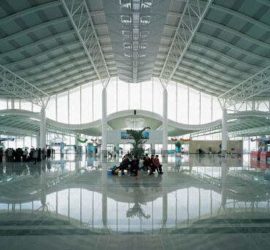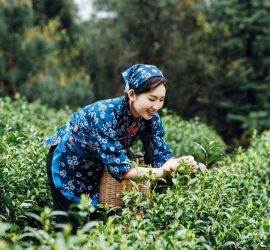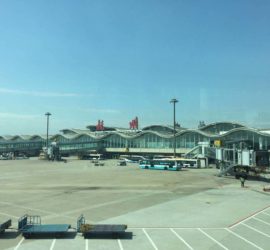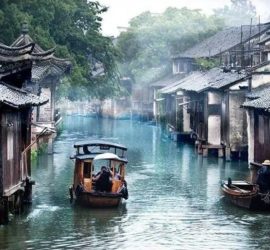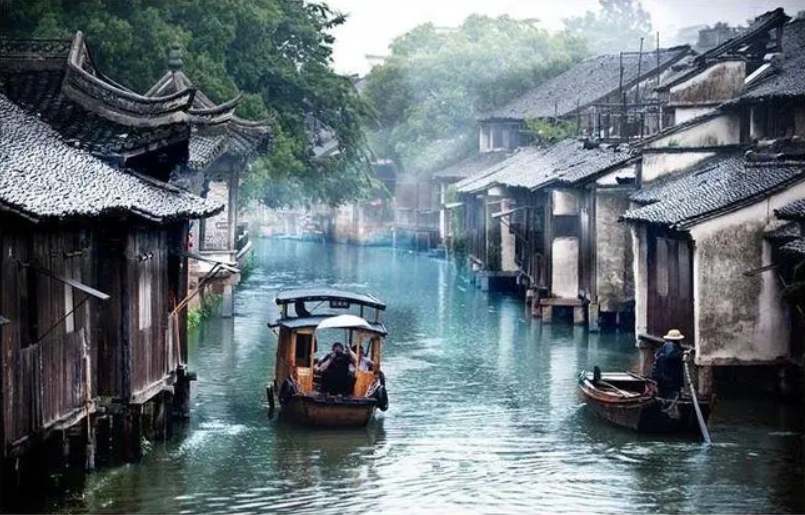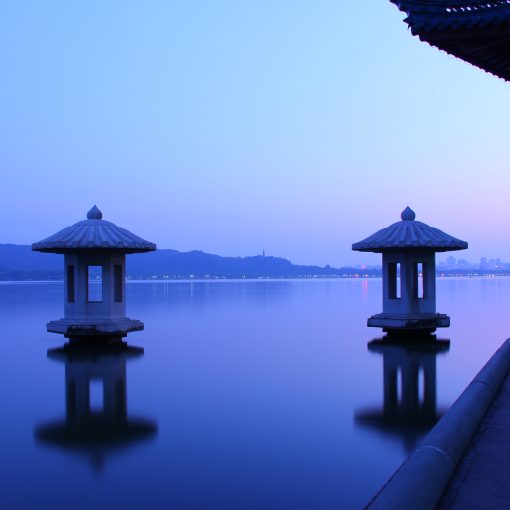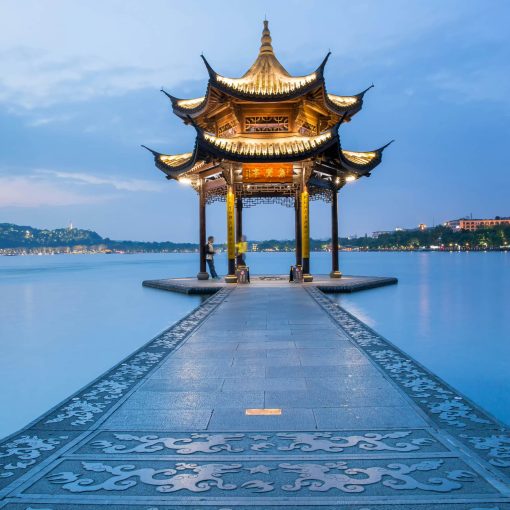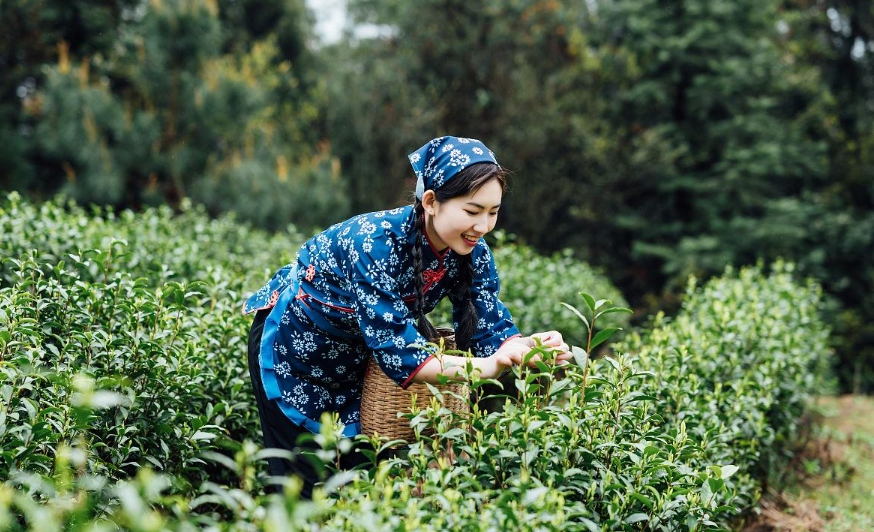
Welcome to the tranquil world of Meijiawu Tea Plantation, where the art of tea cultivation intertwines with centuries-old traditions to create an oasis of serenity amid the bustling energy of China. Nestled amidst the lush greenery of Hangzhou’s West Lake region, Meijiawu offers visitors a glimpse into the rich tapestry of Chinese tea culture, inviting them to embark on a journey of discovery and enlightenment.
As one of the premier tea-producing regions in China, Meijiawu boasts a storied history that stretches back over a millennium. For generations, local farmers have tended to the emerald-green tea fields with unwavering dedication, honing their craft and passing down age-old techniques from one generation to the next. Today, Meijiawu stands as a testament to their enduring legacy, offering a glimpse into the time-honored traditions that have shaped Chinese tea culture for centuries.
But Meijiawu is more than just a place of historical significance—it is a living, breathing testament to the harmony between man and nature. Here, amid the rolling hills and terraced fields, visitors can witness firsthand the meticulous process of tea cultivation, from the tender nurturing of the tea plants to the delicate plucking of the leaves. It is a process steeped in tradition and reverence, where every step is imbued with the spirit of craftsmanship and respect for the land.
In this article, we invite you to join us on a journey through the hallowed grounds of Meijiawu Tea Plantation, where we will explore the history, culture, and natural beauty that define this enchanting destination. From the origins of tea cultivation in the region to the modern-day techniques used to produce some of China’s finest teas, we will delve deep into the heart of Meijiawu, uncovering its secrets and celebrating its enduring legacy.
So sit back, pour yourself a cup of your favorite brew, and prepare to be transported to a world where time stands still and the ancient art of tea takes center stage. Welcome to Meijiawu Tea Plantation—where every sip tells a story, and every moment is steeped in tradition.
History of Meijiawu Tea Plantation
The history of Meijiawu Tea Plantation is a tale as old as time, steeped in legend and folklore that date back to the dawn of Chinese civilization. Located in the picturesque hillsides of Hangzhou’s West Lake region, Meijiawu has long been revered as one of the cradles of Chinese tea culture, with a legacy that spans over a thousand years.
According to local lore, the origins of tea cultivation in Meijiawu can be traced back to the Tang Dynasty (618-907 AD), a golden age of Chinese history when poetry, philosophy, and the arts flourished. It was during this time that tea first began to gain popularity as a beverage, revered for its medicinal properties and refreshing taste. As demand for tea grew, farmers in the West Lake region began to cultivate tea plants on the fertile slopes surrounding Meijiawu, laying the foundation for what would eventually become one of China’s most renowned tea-producing regions.
Over the centuries, Meijiawu’s reputation as a center of tea cultivation continued to grow, attracting scholars, poets, and travelers from far and wide who sought to experience the magic of Chinese tea culture firsthand. It was during the Song Dynasty (960-1279 AD) that Meijiawu truly came into its own, with tea production reaching unprecedented heights and the region gaining fame for its exquisite Longjing green tea—a prized variety known for its delicate flavor and fragrant aroma.
As China entered the Ming (1368-1644 AD) and Qing (1644-1912 AD) dynasties, Meijiawu’s tea industry continued to flourish, with advancements in agricultural technology leading to increased yields and higher-quality teas. It was during this time that the distinctive terraced fields and traditional tea houses that dot the landscape of Meijiawu began to take shape, giving the region its iconic charm and character.
Today, Meijiawu stands as a living testament to the enduring legacy of Chinese tea culture, with its lush tea fields and ancient tea trees serving as a reminder of the rich history and traditions that have shaped the region for centuries. From the humble beginnings of the Tang Dynasty to the modern-day resurgence of interest in traditional Chinese teas, Meijiawu Tea Plantation remains a beacon of tradition and craftsmanship in an ever-changing world.
Location and Setting
Nestled in the verdant hillsides of Hangzhou’s West Lake region, Meijiawu Tea Plantation is a serene oasis of natural beauty and tranquility. Located approximately 30 kilometers southwest of downtown Hangzhou, Meijiawu is easily accessible from the city center, making it a popular destination for both local residents and international travelers alike.
Surrounded by lush forests, rolling hills, and crystal-clear streams, Meijiawu offers visitors a breathtaking glimpse into the unspoiled beauty of rural China. The landscape is dominated by terraced tea fields that stretch as far as the eye can see, their emerald-green foliage glistening in the sunlight and casting a spellbinding glow over the surrounding countryside.
The climate in Meijiawu is characterized by mild temperatures and ample rainfall, creating the perfect conditions for tea cultivation. Summers are warm and humid, while winters are cool and dry, providing a balanced climate that allows the tea plants to thrive year-round. The region’s unique microclimate, combined with its fertile soil and abundant rainfall, results in teas of exceptional quality and flavor—a fact that has earned Meijiawu a reputation as one of China’s premier tea-producing regions.
But Meijiawu is more than just a place of natural beauty—it is a living, breathing testament to the harmonious relationship between man and nature. For generations, local farmers have tended to the tea fields with care and dedication, employing traditional farming methods that have been passed down through the ages. From the gentle plucking of the tea leaves to the meticulous process of drying and roasting, every step of the tea-making process is imbued with a sense of reverence and respect for the land.
As you wander through the terraced fields and quaint villages of Meijiawu, you’ll be transported to a world where time seems to stand still and the ancient rhythms of rural life still echo through the countryside. Here, amid the tranquility of nature and the timeless beauty of the tea fields, you’ll discover a sense of peace and serenity that is as refreshing as a cup of freshly brewed tea.
Tea Cultivation Process
The tea cultivation process at Meijiawu Tea Plantation is a time-honored tradition that has been perfected over centuries of meticulous care and dedication. From the tender nurturing of the tea plants to the delicate plucking of the leaves, every step of the process is imbued with a sense of reverence and respect for the land.
The journey begins in the early spring when the tea plants awaken from their winter slumber and begin to sprout new shoots. Known as the “first flush,” this initial growth spurt is crucial for the development of high-quality tea, as it produces tender young leaves that are prized for their delicate flavor and aroma. During this time, skilled farmers carefully monitor the weather and soil conditions, ensuring that the tea plants receive the nutrients and water they need to thrive.
As the spring progresses, the tea plants continue to grow, producing a bountiful harvest of fresh leaves that will eventually be transformed into some of China’s finest teas. It is during this time that the art of tea plucking comes into play, as experienced farmers venture into the fields to hand-pick the tender young leaves with precision and care. Using traditional techniques passed down through generations, they select only the finest leaves, discarding any that are damaged or of inferior quality.
Once the leaves have been harvested, they are transported to the processing facility where they undergo a series of meticulous steps to transform them into tea. The first step in this process is withering, where the leaves are spread out in a well-ventilated area and allowed to wilt slightly, reducing their moisture content and preparing them for further processing. This is followed by rolling, where the leaves are gently rolled and twisted to release their natural oils and flavors, giving the tea its characteristic taste and aroma.
After rolling, the leaves are subjected to a process known as oxidation, where they are allowed to react with the air to develop their flavor and color. The length of this oxidation period varies depending on the type of tea being produced, with some teas requiring only a brief period of oxidation while others may undergo a more prolonged process. Once the desired level of oxidation has been achieved, the leaves are fired in a hot oven to halt the oxidation process and preserve their flavor and aroma.
The final step in the tea-making process is sorting and grading, where the tea leaves are carefully inspected and sorted according to size, shape, and quality. Only the finest leaves make the cut, with the rest being set aside for use in lower-grade teas or discarded altogether. This attention to detail ensures that only the highest-quality teas make it to market, bearing the unmistakable stamp of Meijiawu’s craftsmanship and dedication to excellence.
In the end, the tea cultivation process at Meijiawu is not just about producing a beverage—it’s about honoring a tradition, preserving a way of life, and connecting with the land in a meaningful way. It’s a process steeped in history and tradition, where every leaf tells a story and every cup is a testament to the enduring legacy of Chinese tea culture.
Types of Tea Produced
Meijiawu Tea Plantation is renowned for its exquisite variety of teas, each offering a unique flavor profile, aroma, and brewing experience. From the delicate sweetness of Longjing green tea to the bold, earthy notes of black tea, Meijiawu produces some of China’s most beloved and sought-after teas, each reflecting the region’s rich history and tradition.
One of the most famous teas to come out of Meijiawu is Longjing green tea, also known as Dragon Well tea. Renowned for its delicate flavor and fragrant aroma, Longjing green tea is prized for its flat, jade-green leaves and subtle, nutty undertones. It is harvested in the early spring when the leaves are young and tender, giving it a fresh, crisp flavor that is beloved by tea enthusiasts around the world.
In addition to Longjing green tea, Meijiawu also produces a variety of other green teas, each with its own unique characteristics and flavor profiles. From the floral notes of West Lake Biluochun to the sweet, grassy taste of Meijiawu Maojian, these teas offer a diverse range of flavors and aromas that are sure to delight even the most discerning palate.
But Meijiawu’s offerings extend far beyond green tea, encompassing a wide range of other tea types as well. Oolong tea, with its complex, fruity flavors and floral aromas, is a favorite among tea connoisseurs, while black tea, with its bold, robust taste and rich, malty undertones, offers a satisfyingly hearty brew that is perfect for sipping on a cold winter’s day.
In addition to these traditional tea types, Meijiawu also produces a variety of flavored and herbal teas, each offering its own unique blend of ingredients and health benefits. From jasmine-scented teas to soothing chamomile blends, these teas offer a refreshing alternative to traditional tea varieties, providing a welcome respite from the stresses of modern life.
No matter what your tea preferences may be, Meijiawu Tea Plantation has something to offer for everyone. Whether you’re a seasoned tea aficionado or a casual drinker looking to explore new flavors, Meijiawu’s diverse selection of teas is sure to delight your senses and leave you craving more.
Tea-Tasting Experience
The tea-tasting experience at Meijiawu Tea Plantation is a journey of the senses, a chance to savor the rich flavors and aromas of some of China’s finest teas in a serene and tranquil setting. From the moment you step foot in one of Meijiawu’s traditional tea houses, you’ll be greeted with warmth and hospitality, invited to take a seat and relax as you prepare to embark on a sensory adventure like no other.
The tea-tasting experience typically begins with a brief introduction to the history and culture of tea, giving visitors a glimpse into the ancient traditions and techniques that have been passed down through generations. From there, guests are guided through a selection of teas, each carefully chosen to showcase the diverse range of flavors and aromas produced at Meijiawu.
As you sip each tea, you’ll be encouraged to take your time and savor the experience, allowing the subtle nuances of each brew to unfold on your palate. From the delicate sweetness of Longjing green tea to the bold, earthy notes of black tea, each sip offers a new and exciting flavor profile, inviting you to explore the depths of your senses and discover the true essence of Chinese tea culture.
Throughout the tasting, knowledgeable staff members are on hand to answer any questions you may have and provide insight into the tea-making process. They’ll share stories and anecdotes about the history and tradition of tea, offering a deeper understanding of the cultural significance of this beloved beverage.
In addition to the tea-tasting experience, Meijiawu also offers traditional tea ceremonies, where guests can witness the ancient rituals and customs that have been practiced for centuries. From the graceful movements of the tea master to the intricate preparation of the tea leaves, these ceremonies offer a rare glimpse into the artistry and skill that goes into making a perfect cup of tea.
Whether you’re a seasoned tea aficionado or a curious newcomer, the tea-tasting experience at Meijiawu Tea Plantation is sure to leave a lasting impression. With its exquisite selection of teas, serene surroundings, and warm hospitality, Meijiawu offers a truly unforgettable journey into the heart of Chinese tea culture, inviting you to slow down, savor the moment, and connect with the rich traditions of the past.
How to get from Hangzhou city center to Meijiawu Tea Plantation?
1. Opening Hours:Meijiawu Tea Plantation is typically open to visitors from 8 am to 6 pm. It’s advisable to check the official website or contact the plantation in advance to confirm the opening hours, as they may vary depending on the season or special events.
2. Admission Fees:While entry to Meijiawu Tea Plantation itself is often free, some activities or attractions within the plantation may require an admission fee. This may include guided tours, tea-tasting experiences, or cultural workshops. Be sure to inquire about any fees associated with specific activities when planning your visit.
3. Transportation Options:Getting to Meijiawu Tea Plantation is relatively straightforward, with several transportation options available:
- Public Transportation:Visitors can take a bus or taxi from downtown Hangzhou to Meijiawu Tea Plantation. Buses 103, 324m, 121 are available from Hangzhou city center and typically take approximately 2.5 hour to reach the plantation. Alternatively, taxis are readily available and offer a convenient and comfortable mode of transportation.
- Private Vehicle:If you prefer the flexibility of driving, you can also reach Meijiawu Tea Plantation by private vehicle. The plantation is accessible via Hangzhou city express way , and ample parking is available onsite for a nominal fee. Be sure to check the plantation’s website or GPS navigation systems for the most up-to-date directions.
4. Recommended Time to Visit:The best time to visit Meijiawu Tea Plantation is during the spring and autumn months when the weather is mild, and the tea fields are in full bloom. However, Meijiawu is a beautiful destination year-round, with each season offering its own unique charms. Whether you’re admiring the vibrant greenery of spring or the golden hues of autumn, Meijiawu is sure to captivate you with its natural beauty.
5. What to Bring:When visiting Meijiawu Tea Plantation, be sure to bring the following essentials:
- Comfortable Walking Shoes: The plantation features uneven terrain and hilly slopes, so comfortable walking shoes are essential for exploring the tea fields and surrounding areas.
- Sun Protection: Hangzhou can experience strong sunlight, especially during the summer months, so be sure to bring sunscreen, sunglasses, and a hat to protect yourself from the sun’s rays.
- Camera: With its stunning natural scenery and picturesque tea fields, Meijiawu offers plenty of photo opportunities. Don’t forget to bring your camera or smartphone to capture the beauty of the plantation.
- Cash: While some vendors at Meijiawu Tea Plantation may accept credit cards, it’s always a good idea to carry some cash for purchases or activities that may require payment.
6. Additional Tips:Here are a few additional tips to help you make the most of your visit to Meijiawu Tea Plantation:
- Arrive Early: To avoid crowds and make the most of your time at the plantation, consider arriving early in the morning when the weather is cooler and the tea fields are at their most picturesque.
- Engage with Locals: Take the time to interact with local farmers and artisans during your visit. They are often eager to share their knowledge and expertise about tea cultivation and may offer insights that enhance your experience.
- Respect the Environment: Meijiawu Tea Plantation is a pristine natural environment, so be sure to respect the surroundings and dispose of trash responsibly. Help preserve the beauty of the plantation for future generations to enjoy.
With this information in hand, you’re ready to embark on a memorable journey to Meijiawu Tea Plantation. Whether you’re a tea enthusiast, a nature lover, or simply seeking a peaceful retreat from the hustle and bustle of city life, Meijiawu offers a captivating blend of natural beauty, cultural heritage, and warm hospitality that is sure to leave a lasting impression.

